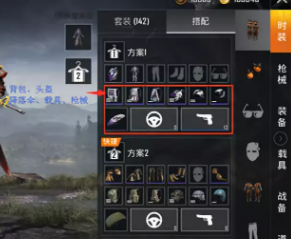what are all cryptocurrencies Related searches
The Japanese yen faces new risks. Strategists worry that the Bank of Japan may wait until March or later to raise interest rates. A new risk is emerging for the Japanese yen. Foreign exchange strategists in Tokyo warn that the Bank of Japan may wait until March or later next year to raise interest rates. On Wednesday, the market tasted this danger, and the yen fell to its lowest level in more than two weeks as traders responded to a Bloomberg report that the Bank of Japan is known to think that it is no harm to raise interest rates later. The yen only fell to 152.82 against the dollar, and the market is still debating whether the Bank of Japan will take action at its next meeting on December 19 or about a month later. Shusuke Yamada, head of Japan's foreign exchange and interest rate strategy at Bank of America in Tokyo, said that if policymakers put off raising interest rates for a longer time, the situation would be very different. "If the interest rate hike is postponed until March, the yen carry trade is likely to make a comeback," Yamada said on Thursday. "The yen is likely to fall again to a level just below the 157 mark hit in 155 or November."U.S. and cloth oil fell 0.3 USD in short term, and now they are reported at 70.08 USD/barrel and 73.50 USD/barrel respectively.Liu Shijin: To expand consumption, we should manage from the source, and give priority to improving basic public services and consumption of low-and middle-income groups. Liu Shijin, deputy director of the 13th Chinese People's Political Consultative Conference Economic Commission and former deputy director of the the State Council Development Research Center, pointed out in his speech at the main forum of the 2024 Southern Finance and Economics International Forum that the macro-economy is picking up, but it is also facing the increasing pressure of insufficient total demand, especially insufficient consumer demand, and the focus of which is insufficient service consumption. We should give priority to improving basic public services and the consumption environment of low-and middle-income groups through "source governance" to promote the integrated development of urban and rural areas. On the basis of short-term stimulus policies, combined with medium-and long-term reforms, we will solve the institutional problems that restrict the expansion of consumption and help China's economy achieve high-quality development. "At present, it is necessary to distinguish the problems caused by insufficient demand from the causes of insufficient demand." Liu Shijin pointed out that from the perspective of international comparison, the lack of consumption demand in China at this stage is a structural deviation. In Liu Shijin's view, it is necessary to identify the key points or pain points in expanding consumer demand at this stage. First, service consumption based on basic public services, including education, medical and health care, affordable housing, social security, culture, sports and entertainment, financial services, transportation and communication; Second, the middle and low-income class with migrant workers as the focus; Third, people-centered, urbanization and urban-rural integration. (21 Finance)
Schlegel, Governor of the Swiss National Bank: We still have ammunition left over in terms of interest rates. Inflationary pressure has dropped in the medium term. Our main tool is the policy interest rate, through which we can influence the economy and exchange rate.The Japanese yen faces new risks. Strategists worry that the Bank of Japan may wait until March or later to raise interest rates. A new risk is emerging for the Japanese yen. Foreign exchange strategists in Tokyo warn that the Bank of Japan may wait until March or later next year to raise interest rates. On Wednesday, the market tasted this danger, and the yen fell to its lowest level in more than two weeks as traders responded to a Bloomberg report that the Bank of Japan is known to think that it is no harm to raise interest rates later. The yen only fell to 152.82 against the dollar, and the market is still debating whether the Bank of Japan will take action at its next meeting on December 19 or about a month later. Shusuke Yamada, head of Japan's foreign exchange and interest rate strategy at Bank of America in Tokyo, said that if policymakers put off raising interest rates for a longer time, the situation would be very different. "If the interest rate hike is postponed until March, the yen carry trade is likely to make a comeback," Yamada said on Thursday. "The yen is likely to fall again to a level just below the 157 mark hit in 155 or November."South Korea's National Assembly passed "Yin Xiyue's General Special Inspection Law" and "Jin Jianxit's Inspection Law". The reporter of the General Station was informed that on the 12th local time, South Korea's National Assembly held a general meeting of parliamentarians and passed "Yin Xiyue's General Special Inspection Law" and "Jin Jianxit's Inspection Law". (CCTV News)
After the emergency martial law storm, South Korea's financial industry suffered successively. After the emergency martial law storm in South Korea, South Korea's financial industry suffered successively, and the stock market fluctuated obviously. This week, it began to rebound slightly. South Korean media pointed out that the uncertainty of South Korea's political situation may put its international reputation under downward pressure. South Korea's Deputy Prime Minister and Minister of Planning and Finance, Choe Sang-mu, held an "emergency macroeconomic and financial symposium" on the 10th to discuss the dynamics of the financial and foreign exchange markets and the countermeasures. According to South Korea's Chosun Ilbo reported on the 9th, after the emergency martial law storm, the total market value of South Korea's stock market evaporated by 58 trillion won within three days, and more than 400 billion US dollars of foreign exchange reserves were also threatened. As the political struggle of "impeaching the president" continues, not only finance, but also retail, alcohol, real estate, semiconductor export and other aspects of the Korean economy have also felt the chill. South Korean media believe that if financial instability and the stagnation of the real economy, the economy may fall into crisis sharply. According to the "Foreign Securities Investment Trends in November" released by the Korea Financial Supervisory Authority on the 10th, foreign investors sold 4.154 trillion won in the Korean securities market last month and sold Korean shares for four consecutive months. South Korea's "Asia Daily" said on the 10th that as South Korea re-entered the presidential impeachment time, the uncertainty intensified, and it is expected that the net selling behavior of foreign investors will continue. Although South Korea's stock market rebounded on the 10th, the uncertainty of the political situation put its international reputation under downward pressure. South Korea's Chosun Ilbo published a commentary on the 10th, saying that Fitch and Moody's, among the world's three major credit rating agencies, have successively warned that if the storm after martial law is prolonged, South Korea's national credit rating may be negatively affected. (CCTV)After the emergency martial law storm, South Korea's financial industry suffered successively. After the emergency martial law storm in South Korea, South Korea's financial industry suffered successively, and the stock market fluctuated obviously. This week, it began to rebound slightly. South Korean media pointed out that the uncertainty of South Korea's political situation may put its international reputation under downward pressure. South Korea's Deputy Prime Minister and Minister of Planning and Finance, Choe Sang-mu, held an "emergency macroeconomic and financial symposium" on the 10th to discuss the dynamics of the financial and foreign exchange markets and the countermeasures. According to South Korea's Chosun Ilbo reported on the 9th, after the emergency martial law storm, the total market value of South Korea's stock market evaporated by 58 trillion won within three days, and more than 400 billion US dollars of foreign exchange reserves were also threatened. As the political struggle of "impeaching the president" continues, not only finance, but also retail, alcohol, real estate, semiconductor export and other aspects of the Korean economy have also felt the chill. South Korean media believe that if financial instability and the stagnation of the real economy, the economy may fall into crisis sharply. According to the "Foreign Securities Investment Trends in November" released by the Korea Financial Supervisory Authority on the 10th, foreign investors sold 4.154 trillion won in the Korean securities market last month and sold Korean shares for four consecutive months. South Korea's "Asia Daily" said on the 10th that as South Korea re-entered the presidential impeachment time, the uncertainty intensified, and it is expected that the net selling behavior of foreign investors will continue. Although South Korea's stock market rebounded on the 10th, the uncertainty of the political situation put its international reputation under downward pressure. South Korea's Chosun Ilbo published a commentary on the 10th, saying that Fitch and Moody's, among the world's three major credit rating agencies, have successively warned that if the storm after martial law is prolonged, South Korea's national credit rating may be negatively affected. (CCTV)Lingang Daya Auto Parts Intelligent Manufacturing Base Project officially started. On the morning of December 12th, the groundbreaking ceremony of Lingang Daya Auto Parts Intelligent Manufacturing Base Project was held in Shanghai Lingang Fengxian Park. After the completion of the project, two 3500T/2500T high-speed multi-position stamping lines are designed, with an annual production capacity of 11 million pieces; Design 210 connection workstations such as spot welding/arc welding/projection welding/riveting, with an annual production capacity of 4 million sets of sheet metal parts; Design an intelligent logistics and three-dimensional warehouse.
Strategy guide 12-14
Strategy guide 12-14
Strategy guide
12-14
Strategy guide
12-14
Strategy guide
12-14
Strategy guide






























